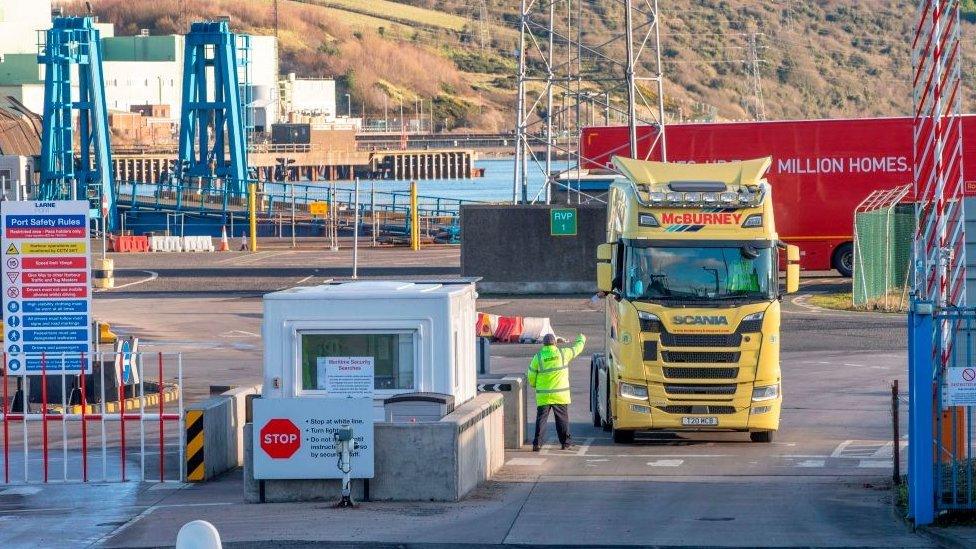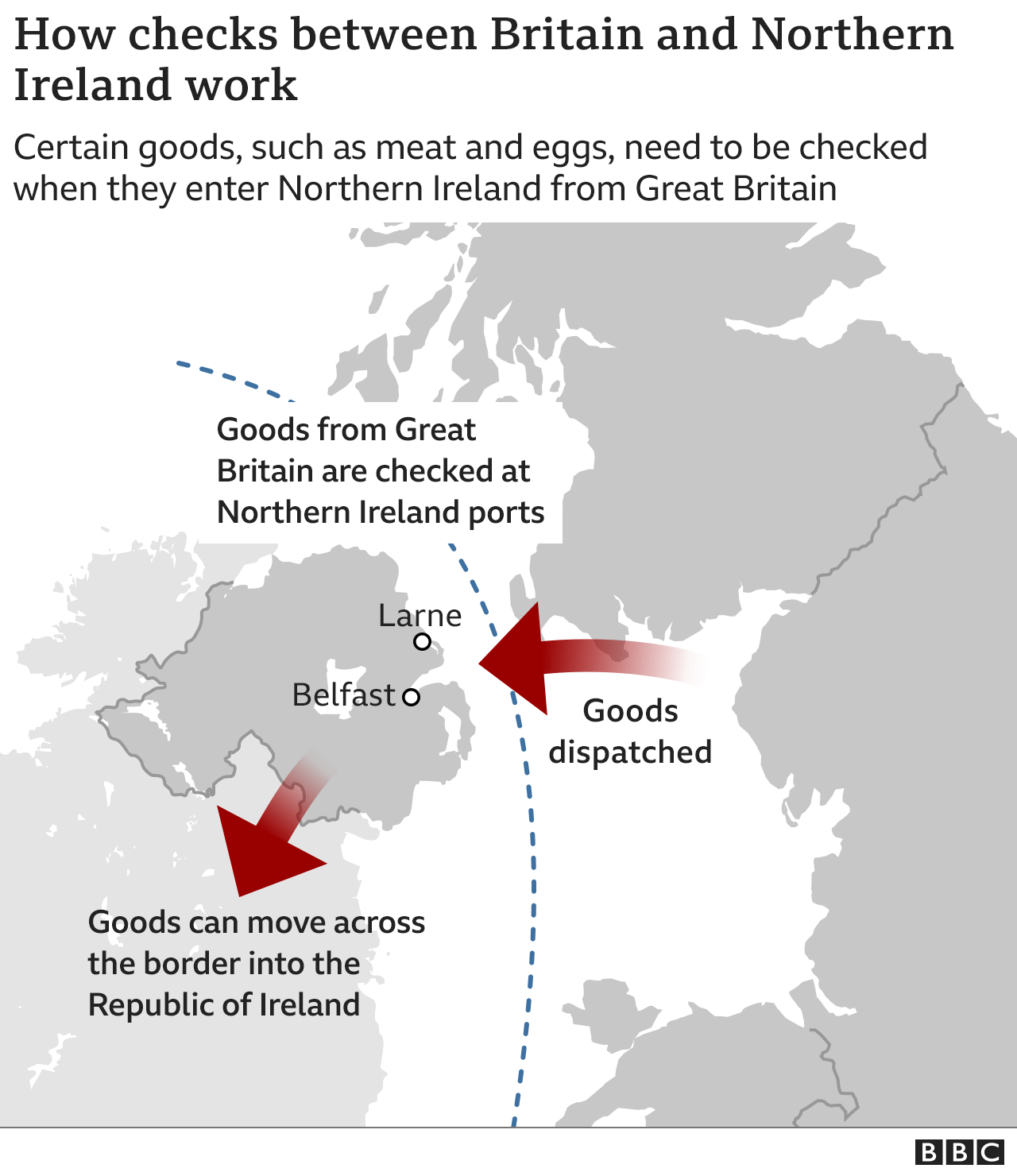NI Protocol: 'Renewed degree of urgency' in talks
- Published
- comments

Some goods need to be checked as they enter Northern Ireland under the deal
Foreign Secretary Liz Truss has held talks with a group of business leaders in Northern Ireland to discuss the protocol negotiations.
The meeting took place virtually for about an hour on Tuesday morning.
Ms Truss, the UK's lead negotiator, is due to host her EU counterpart Maros Sefcovic for two days of talks at Chevening in Kent later this week.
Business representatives in Northern Ireland have said "practical solutions" must be found to manage the protocol.
'Degree of urgency'
The head of the Federation of Small Businesses in Northern Ireland said there was a "landing zone" when it comes to finding solutions to the protocol.
Roger Pollen said he got a sense from Ms Truss that there was a renewed "degree of urgency" in the talks.
"There is a landing zone and an expectation that things can be achieved fairly quickly," he said.
"They know what needs to be done."
Retail NI, who also attended the meeting, said that trading issues needed to be resolved "as a matter of priority".
On Monday, the DUP and Sinn Féin held separate talks with Ms Truss.
Afterwards, DUP leader Sir Jeffrey Donaldson said he wanted the government to set a timeline for how and when changes to the protocol would be made.
But he did not repeat his threat to withdraw his party's ministers from Stormont if progress is not made.
Sinn Féin's vice president Michelle O'Neill said she had made it clear the protocol was "here to stay" and accused the DUP of engaging in "political stunts".
Speaking on a visit to Northern Ireland on Tuesday, Secretary of State Brandon Lewis said the UK government would not be setting "arbitrary timeframes".
"We all want to see a resolution - our position hasn't changed but we need to resolve this in a way that works for the people of Northern Ireland," he added.
He said he would also take part in discussions with the EU's Maros Sefcovic later this week.
The Northern Ireland Protocol is a deal reached between the UK and the EU to avoid a hard border on the island of Ireland, by keeping Northern Ireland inside the EU's single market for goods.
That also creates a new Irish Sea trade border between Northern Ireland and the rest of the UK, with some goods needing to be checked as they enter Northern Ireland.
Unionists have said they are opposed to the deal, saying it poses a risk to the UK union.
Over the past six months the UK government has been attempting to renegotiate the agreement.

In July, the UK proposed an arrangement in which goods from Great Britain, which are due to stay in Northern Ireland, would not be checked and would have minimal paperwork.
Goods which are due to move onwards to the Republic of Ireland would be checked at Northern Ireland's ports.
The EU published its own proposals in October, which it said would significantly reduce, but not eliminate, checks on goods.
It has previously said that the easiest way to reduce checks would be for the UK to sign up to a Swiss-style agri-food agreement.
That would involve all of the UK following the relevant EU rules, something the government says it could not accept.
Related topics
- Published2 February 2024
